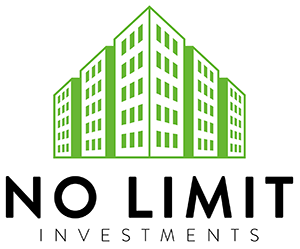What Are Real Estate Equity Loans and How Do They Work?
Real estate equity loans allow property owners to tap into the equity they’ve built in their investment properties. Equity is the difference between the current market value of the property and the remaining balance on any existing mortgage. These loans enable investors to borrow against that difference and access liquid capital without selling the property.
There are two common types of real estate equity loans:
- Home Equity Loans (HELs) – Lump-sum loans with fixed interest rates, repaid over a fixed term.
- Home Equity Lines of Credit (HELOCs) – Revolving credit lines that work similarly to credit cards, with variable interest rates and flexible draw periods.
These loans can be powerful tools when used strategically, helping investors grow portfolios, fund renovations, or secure additional properties.
Why Should Investors Consider Tapping Into Property Equity?
Real estate equity loans provide access to funds that would otherwise remain locked in a property’s value. This makes them ideal for:
- Expanding a property portfolio without needing fresh capital
- Financing renovations or upgrades to boost property value and rental income
- Covering unexpected repairs or emergency costs
- Funding other investments while maintaining property ownership
Using equity allows investors to leverage existing assets without liquidating them. It creates a cycle of reinvestment and portfolio scaling.
How Do You Qualify for a Real Estate Equity Loan?
Qualifying for an equity loan depends on several factors:
- Equity available: Most lenders require at least 15–20% equity in the property.
- Loan-to-Value Ratio (LTV): This ratio compares the loan amount to the appraised value of the property. Lower LTVs are preferable to lenders.
- Creditworthiness: While some investor-friendly lenders focus on asset-based criteria, good credit still plays a role.
- Property performance: Income-generating properties with positive cash flow are often viewed more favorably.
Many investors turn to private lenders like No Limit Investments, which offer more flexible underwriting standards than traditional banks.
What Can Real Estate Equity Loans Be Used For?
Equity loans are versatile and can be used for a variety of real estate investment needs:
- Buy-and-hold acquisitions
- Down payments on new properties
- Rehab projects for fix-and-flips
- Bridge financing during property transitions
- Paying off high-interest debt related to previous investments
These use cases align well with creative financing strategies, especially when working with lenders like No Limit Investments that understand investor needs.
How Do Real Estate Equity Loans Compare to Other Financing Options?
When evaluating funding choices, investors should weigh the pros and cons of equity loans against alternatives:
Versus Traditional Mortgages:
- Equity loans are typically quicker to obtain
- No need to qualify based on personal income
Versus Personal Loans or Credit Cards:
- Lower interest rates
- Larger amounts available
Versus Cash-Out Refinance:
- Less paperwork
- Doesn’t replace existing mortgage
Versus DSCR Loans:
- Equity loans depend on property value, while DSCR loans depend on property cash flow
Each option has strengths, and combining them—like using equity for down payments while securing DSCR loans—can be especially effective.
What Services Can Help You Maximize Real Estate Equity Loans?
Investors looking to optimize real estate equity loans should consider working with a full-service financing partner. No Limit Investments offers:
- Fix & Flip Loans
- Buy & Hold Mortgages
- BRRRR Financing (Buy, Rehab, Rent, Refinance, Repeat)
- Cash-Out Refinancing
- New Construction Loans
- Short-Term Rental Loans
- DSCR Loans
These offerings are designed specifically for real estate investors and can be paired with equity loans to create highly tailored financing solutions.
How Can You Minimize Risks When Using Equity Loans?
While real estate equity loans are useful, they come with responsibilities. Mismanagement can lead to foreclosure or long-term debt issues. To minimize risk:
- Avoid overleveraging by keeping LTV ratios conservative
- Have a repayment plan aligned with your investment income
- Use equity for income-producing purposes, not personal expenses
- Consult with professionals for appraisals, loan structuring, and tax guidance
A strategic approach can protect your assets and keep your portfolio growing steadily.
What Are the Tax Implications of Using Equity Loans?
According to the IRS, interest on home equity loans is generally not tax-deductible unless the loan is used to “buy, build, or substantially improve” the home securing the loan (IRS.gov). For investment properties:
- Interest may be deductible if the funds are used for investment-related expenses
- Loan origination fees and other charges may be capitalized
- Consult a tax advisor to properly structure and report the loan usage
Smart investors consider taxes as part of their overall return calculation and financing strategy.
How Can You Get Started With a Real Estate Equity Loan Today?
Getting started involves three major steps:
- Assess your equity position – Get a property appraisal or comparable market analysis.
- Define your funding purpose – Be clear on how the capital will grow your portfolio.
- Choose a lender – Work with a team that understands real estate investing, like No Limit Investments.
No Limit Investments offers tailored support and a variety of real estate loan products to match your goals. Whether you need capital to renovate a property or scale your holdings, their investor-friendly approach can help you execute with confidence.
What Should You Do Next?

Ready to unlock the potential of your real estate equity? Don’t let your capital sit idle. Whether you’re fixing and flipping or building a long-term rental portfolio, smart financing makes all the difference.
Partner with No Limit Investments to access real estate equity loans and a full suite of financing tools built specifically for investors. Their expert team can guide you through your options and help you deploy your equity for maximum return. Call now and book for an appointment!
Final Thoughts
Real estate equity loans can be powerful tools for growing your investment portfolio when used wisely. By leveraging the value already built into your properties, you can gain access to flexible capital that fuels further growth. With strategic use and the right lending partner, equity loans can help you scale faster, smarter, and more sustainably.
Works Cited
Internal Revenue Service. “Interest on Home Equity Loans Often Still Deductible Under New Law.” IRS.gov, 8 Feb. 2018, https://www.irs.gov/newsroom/interest-on-home-equity-loans-often-still-deductible-under-new-law.
Consumer Financial Protection Bureau. “What is a home equity loan?” ConsumerFinance.gov, https://www.consumerfinance.gov/ask-cfpb/what-is-a-home-equity-loan-en-110/
U.S. Department of Housing and Urban Development. “Common Questions from Homebuyers.” HUD.gov, https://www.hud.gov/program_offices/housing/sfh/buying/faq.
Investopedia. “Home Equity Loan.” Investopedia.com, https://www.investopedia.com/terms/h/homeequityloan.asp
No Limit Investments. “Services.” NoLimitInvestments.net, https://nolimitinvestments.net/services/
Frequently Asked Questions:
1. What is a real estate equity loan?
A real estate equity loan allows property owners to borrow against the equity in their investment property—the difference between the property’s market value and the remaining mortgage balance. These funds can be used for expanding a portfolio, renovations, or other investment needs.
2. How can I use a real estate equity loan to grow my investment portfolio?
You can use the equity loan to fund down payments on new properties, rehab existing ones, or even secure bridge financing during transitions. It provides quick capital without selling your assets, making it ideal for scaling.
3. What do I need to qualify for a real estate equity loan?
To qualify, you generally need at least 15–20% equity in the property, a reasonable loan-to-value (LTV) ratio, and a solid credit or property income history. Investor-focused lenders like No Limit Investments offer more flexible terms than traditional banks.
4. How does an equity loan compare to a DSCR loan or a cash-out refinance?
Unlike a DSCR loan (which focuses on rental income) or a full cash-out refinance (which replaces your mortgage), an equity loan provides additional capital while keeping your current mortgage intact. It’s often quicker and more flexible than traditional options.
5. Are there risks or tax implications I should be aware of?
Yes. Overleveraging or failing to repay can put your property at risk. Also, interest is only tax-deductible if the loan is used to improve the property or for investment-related expenses. Always consult with a tax advisor and use the loan strategically.







